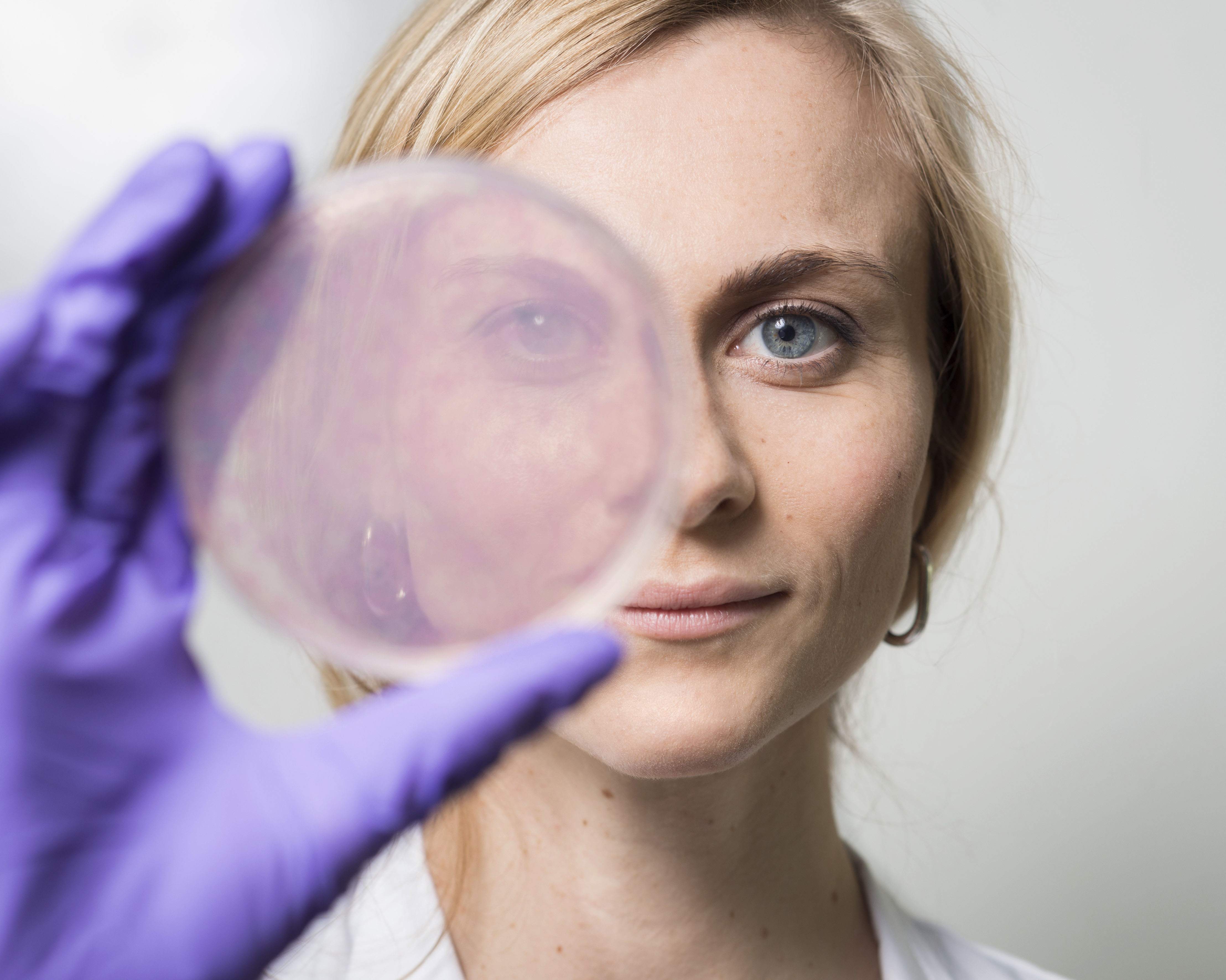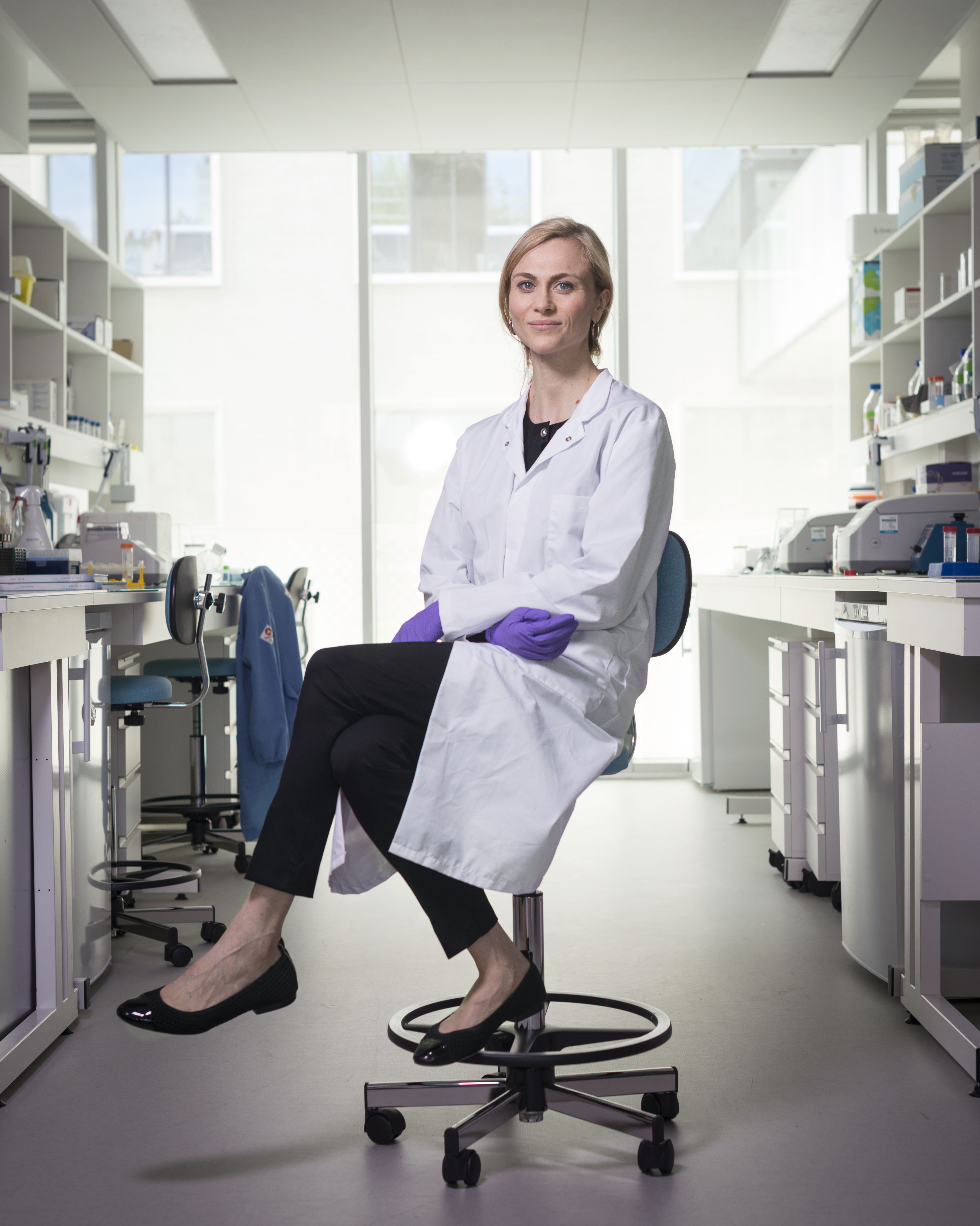‘We’re attempting to make foie gras based on stem cells’
Currently working in France, Nadine Bongaerts looks back with satisfaction at her student days in Delft. “The network I built up is incredibly valuable. Compared to French universities, TU Delft is really good in the practical, hands-on application of theory, which gives students very valuable skills.”

Nadine Bongaerts studied Life Sciences and Technology (LST), the TU Delft and Leiden University joint programme. She had her Eureka moment in 2010, competing with a student team in the IGEM competition, an international synthetic biology contest. “That was at the time of the Gulf of Mexico oil disaster, which inspired us to create bacteria that can break down oil molecules into CO2”, she explains. “At the start, LST was all about studying biology. iGEM made me realise that we can use biology as the ultimate technical tool for sustainable development.”
Having completed her doctorate, Bongaerts now works at the start-up Gourmey, the first French company with plans to market cultivated meat. “We’re attempting to make foie gras based on stem cells. Foie gras is probably the ultimate French product, but incredibly unethical because of the way it’s produced”, she explains.
It is likely to take years before the first jar of Gourmey arrives in the supermarket. “There are so many questions that need to be answered first, some involving fundamental science. Cultivated meat is a subject at the cutting edge of numerous fields, including food science, biotechnology, stem cell technology and genetics. That’s what makes it so interesting. All of us, academic research groups and start-ups like Gourmey, are creating a totally new field.”
She was recently able to share her passion for synthetic biology at a DEAN event. DEAN (Dutch Engineers Alumni Network) is the alumni network for the four Dutch universities of technology. “During lockdown, I gave a Zoom presentation for a seminar especially for alumni in France. I hadn’t realised that there are so many TU alumni in France and I got to know a lot of new people. It would be great if meetings like this could be held in person again soon.”
Bongaerts highlighted some recent developments in synthetic biology. “When people think of technology, they still tend to think of robotics and AI. I tried to show that biology-based technology has now been developed to the stage where it can be used in all kinds of areas outside pharmacy.”
Spider’s silk
“You can now use DNA for data storage – a DNA molecule stays intact for a thousand years, making it ideal to store information on, better than the average hard drive. Currently, it’s still difficult to read or change the data efficiently, but there are all kinds of experiments involving the use of DNA as a means of storing important secret data”, she continues. “Biosensors are another example. They’re already being used in diagnostics: a Covid-19 test senses whether or not a specific piece of virus is present. All kinds of other applications may be possible, such as measuring toxic substances.” Innovative materials will also come from nature. “Take spider’s silk, for example, it’s light but incredibly strong. Some companies are now trying to produce it using yeasts or bacteria.”
Biosensors, cultivated meat, spider’s silk: for Bongaerts, these are all advances towards a new world, where polluting processes can hopefully be replaced by their biological alternative. “I hope that we can make a greener world with the help of technology. Biological processes are perfect for that and I would like to contribute to achieving it”, she says.
Until then, there are still some barriers to be overcome. “Currently, pollution is not taken into account in product pricing. This means that new technologies that require a lot of investment cannot compete with products that pollute and consumers are unwilling to pay for them. Technologically, it will all work out, but the major social and political challenges are much bigger. They will ultimately be the decisive factor.”
Read more: alumni.tudelft.nl.
